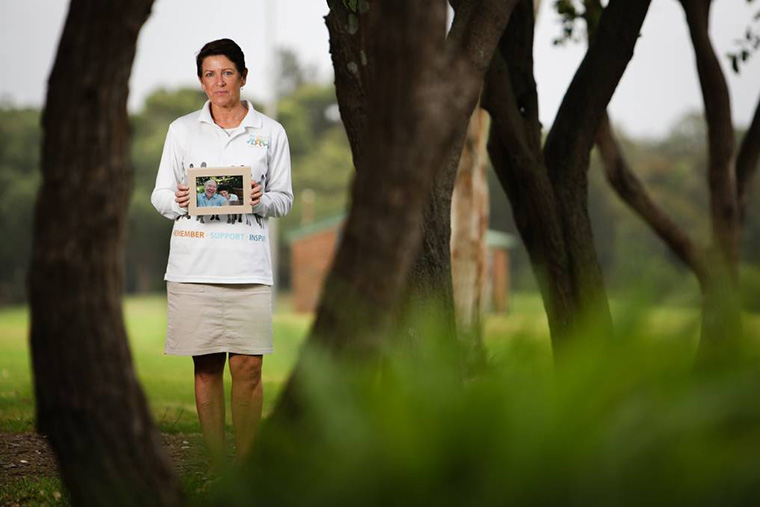Anne Clarke will be forever grateful to the Melanoma Institute Australia for allowing her extra time with her brother, Father Paul Cooney.
The Thirroul resident said Fr Cooney was given the devastating news he had two months to live in December 2015.
Yet access to two clinical trials through the institute gave him precious time to spend with family and friends – and to be at peace with his prognosis.
When he passed away in August 2018, it was on his own terms.
“Paul was in Rome when he was diagnosed with stage four melanoma,” Ms Clarke said.
“He wanted to be back with family and when he arrived back in December 2015 he was immediately referred to Professor Georgina Long at the Melanoma Institute Australia.
“Without treatment he was told he would have two months to live. But two different clinical trials gave him time and he did really well for two-and-a-half years.
“In the end he decided it was time. He’d battled so hard, had so many operations and treatment, and he’d come to terms with what was happening.”
Fr Cooney died peacefully in Thirroul, holding his sister’s hand. Next Sunday Ms Clarke, and other relatives, will take part in the Melanoma March along with hundreds of others with loved ones battling melanoma, or who’ve lost their lives to it.
“We’ll be walking in Paul’s memory, and also to raise awareness of this awful disease so it can be prevented,” Ms Clarke said.
“Paul had first been diagnosed with melanoma in Rome in 2014, when a lesion was removed from his back. But in Europe there isn’t the awareness about melanoma that there is here, so there wasn’t sufficient follow-up.
“It was only 18 months later, when he began to feel lethargic and had difficulty breathing, that a scan revealed the melanoma had spread to his lungs and other organs. That’s when he came home.”
The Wollongong march, which kicks off at Stuart Park at 7.30am, is one of 23 marches across Australia to raise funds for Melanoma Institute Australia.
“We know Paul’s life was extended by the clinical trials and that’s why research is so vital,” Ms Clarke said. “We need to find new treatments, and hopefully a cure.”
Melanoma Institute Australia CEO Matthew Browne said they were working towards melanoma becoming a chronic disease, not a terminal illness.
“Annually more than 14,000 Australians are diagnosed with melanoma and sadly one person dies every five hours from the disease,” he said. “It is also the most common cancer affecting 15 to 39 year old Australians.”
*This article was originally published at https://www.illawarramercury.com.au/story/5934472/research-gave-us-more-time-thats-why-im-joining-melanoma-march*



